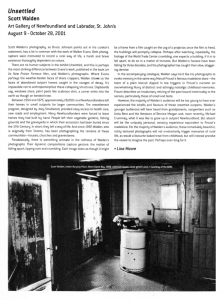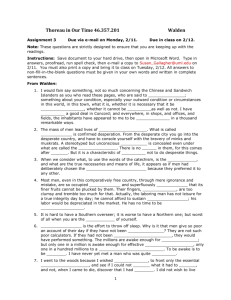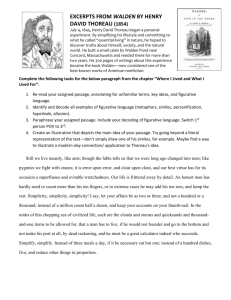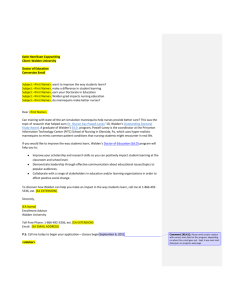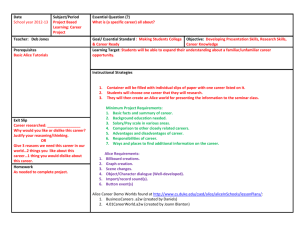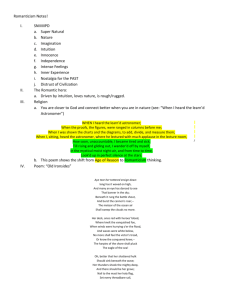Department Store Dilemma: A Business Ethics Case Study
advertisement
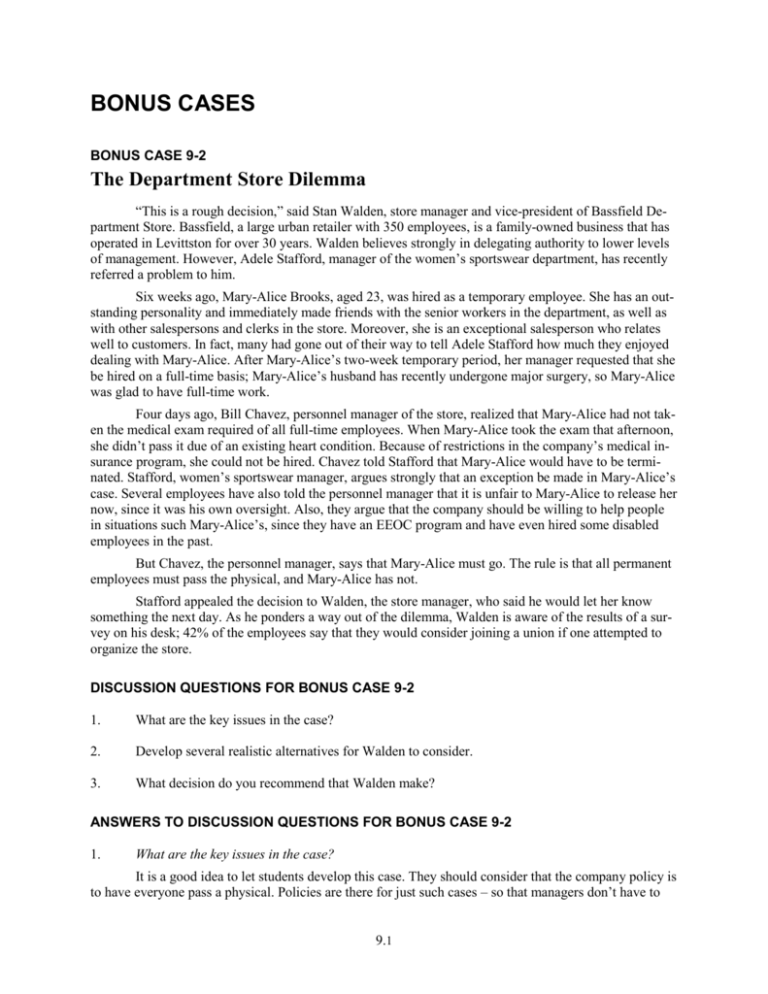
BONUS CASES BONUS CASE 9-2 The Department Store Dilemma “This is a rough decision,” said Stan Walden, store manager and vice-president of Bassfield Department Store. Bassfield, a large urban retailer with 350 employees, is a family-owned business that has operated in Levittston for over 30 years. Walden believes strongly in delegating authority to lower levels of management. However, Adele Stafford, manager of the women’s sportswear department, has recently referred a problem to him. Six weeks ago, Mary-Alice Brooks, aged 23, was hired as a temporary employee. She has an outstanding personality and immediately made friends with the senior workers in the department, as well as with other salespersons and clerks in the store. Moreover, she is an exceptional salesperson who relates well to customers. In fact, many had gone out of their way to tell Adele Stafford how much they enjoyed dealing with Mary-Alice. After Mary-Alice’s two-week temporary period, her manager requested that she be hired on a full-time basis; Mary-Alice’s husband has recently undergone major surgery, so Mary-Alice was glad to have full-time work. Four days ago, Bill Chavez, personnel manager of the store, realized that Mary-Alice had not taken the medical exam required of all full-time employees. When Mary-Alice took the exam that afternoon, she didn’t pass it due of an existing heart condition. Because of restrictions in the company’s medical insurance program, she could not be hired. Chavez told Stafford that Mary-Alice would have to be terminated. Stafford, women’s sportswear manager, argues strongly that an exception be made in Mary-Alice’s case. Several employees have also told the personnel manager that it is unfair to Mary-Alice to release her now, since it was his own oversight. Also, they argue that the company should be willing to help people in situations such Mary-Alice’s, since they have an EEOC program and have even hired some disabled employees in the past. But Chavez, the personnel manager, says that Mary-Alice must go. The rule is that all permanent employees must pass the physical, and Mary-Alice has not. Stafford appealed the decision to Walden, the store manager, who said he would let her know something the next day. As he ponders a way out of the dilemma, Walden is aware of the results of a survey on his desk; 42% of the employees say that they would consider joining a union if one attempted to organize the store. DISCUSSION QUESTIONS FOR BONUS CASE 9-2 1. What are the key issues in the case? 2. Develop several realistic alternatives for Walden to consider. 3. What decision do you recommend that Walden make? ANSWERS TO DISCUSSION QUESTIONS FOR BONUS CASE 9-2 1. What are the key issues in the case? It is a good idea to let students develop this case. They should consider that the company policy is to have everyone pass a physical. Policies are there for just such cases – so that managers don’t have to 9.1 make decisions over and over again with hard cases. But the human side also needs to be considered, as does the affect on existing employees and customers. 2. Develop several realistic alternatives for Walden to consider. A store manager is very concerned with sales and profit; therefore, it would be hard to let go a stellar sales performer. Among the alternatives: (1) Seek a second opinion from another physician to determine the exact extent of Mary-Alice’s condition. (2) Look into purchasing a supplemental health insurance policy for Mary-Alice. (3) Waive the insurance restriction and hire Mary Alice anyway. (4) Reduce Mary Alice’s hours below full-time status so the restriction would not apply. (5) Find another insurance company. (6) Fire Mary Alice. 3. What decision do you recommend that Walden make? I have used this case in my classes several times over two decades. With very few exceptions, students have decided to keep Mary Alice on despite the manager’s recommendation. A few want to fire Chavez. Some think the employees should unionize to protect themselves from unfair practices. Most want to find a middle ground that lets Mary Alice keep her job with some modifications to the policy. One practical idea suggested is to involve the employees in the decision-making process, perhaps creating an ad hoc committee made up of managers, employees, and knowledgeable consultants. If employees are given the all the facts, they can make an educated decision. A decision reached with employee input is more likely to be accepted by workers than one dictated by management. Explain that insurance premiums are based on the combined experience of the group covered. In a large organization, one expensive medical problem will be spread out over a large number of covered workers. In a small business, however, one person’s health costs can drive up premiums very quickly. Would employees be willing to accept higher insurance premiums to keep this valuable worker? A very important point to consider: Is this policy even legal? Can you reject a potential employee because of a medical problem? Does this violate the Americans with Disabilities Act? If you fire Mary Alice, are you opening your company to a wrongful termination lawsuit? 9.2 MANAGEMENT: A REAL WORLD APPROACH: Instructor’s Resource Manual

